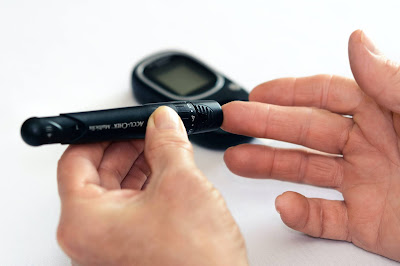How to control your diabetes in the time of COVID
Diabetes and COVID are not a good match. In fact, in the largest epidemiological investigation from the Chinese Center for Disease Control, The COVID-19 mortality in the presence of diabetes rose up to 7.3 percent. A report by EpiCentro also shows that diabetes accounts for 30.5 percent of comorbidities among COVID-related deaths in Italy. And here in the Philippines, the World Health Organization reported that 77 percent of COVID-related deaths had either one or several known co-morbidities like diabetes, chronic kidney disease, hypertension, cardiac disease, bronchial asthma, and cancer.
“COVID-19 and diabetes are both inflammatory disorders. That being said, the presence of diabetes can make one’s COVID infection worse,” said Dr. Jeremy Robles, President of the Philippine Society of Endocrinology, Diabetes and Metabolism (PSEDM).
According to Dr. Robles, controlling diabetes will depend largely on patient adherence because diabetes is both a chronic and a lifetime disease. Patient adherence refers to the willingness to take care of one’s own health by following the treatment the doctor prescribed. Adding to that, the patient will be able to experience better outcomes when they continuously and consistently follow the doctor’s advice.
His advice? Apat Dapat—four simple, yet effective, ways for patients to control diabetes:
Eating healthy and on time helps normalize blood sugar. PSEDM advises eating more fruits, vegetables, and fish, while avoiding high sugar drinks like juice, iced teas, milk teas, and energy drinks.
“That does not mean people with diabetes cannot eat good food anymore,” said Dr. Robles. “Everything changes but it does not equate to its the end of your life. You do not give up everything. What’s important is to understand your disease and your limitations.”
Exercise
PSEDM guidelines state that exercise has been proven to lower blood sugar because it helps fight against ‘insulin resistance.’ This means that when you exercise, your insulin works better. While it may be more difficult to exercise given the restrictions of the pandemic, there are many exercises that can be done in the comfort of your own home. Try jogging in place, skipping rope, or even just brisk walking around the house for 30 minutes or more. You can even follow along with some dance videos on YouTube. Whatever you choose to do, any type of physical activity can potentially improve insulin sensitivity.
Regular medication
Experts will agree that taking medication every day is one of the most important steps in maintaining normal blood sugar levels. Regular medication also helps prevent complications brought on by uncontrolled blood sugar. “It would be more costly to deal with complications later on. Talk to your doctor for lower cost alternatives,” said Dr. Robles.
Regular check-ups
A doctor is an important partner in a patient’s diabetes management, and regular visits will ensure progress towards normal levels of blood sugar, blood pressure, and cholesterol. Going to regular check-ups is a supporting pillar of the PSEDM guidelines because it ensures adherence to the other three—proper diet, regular exercise, and consistent medication.
Living with diabetes is not easy said Dr. Robles. The anxiety that comes with potential complications, especially during this time, can also be difficult to deal with. “It’s important to remember that diabetes is dangerous, and complications may be fatal,” he said. “Taking control of diabetes means being responsible for one’s disease. By adhering to Apat Dapat, patients can take a monumental step towards controlling their diabetes.”
This article is part of a series of informative pieces from Kontrolado Ko, Diabetes Ko, an awareness campaign by MSD in the Philippines that advocates patient adherence to medication and treatment among people with diabetes in the Philippines.
The goal of the campaign is to raise awareness among people with diabetes about the importance of making impactful changes to one’s own lifestyle to manage diabetes, and that taking medication as prescribed by their doctors is a vital first step toward better health outcomes




